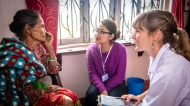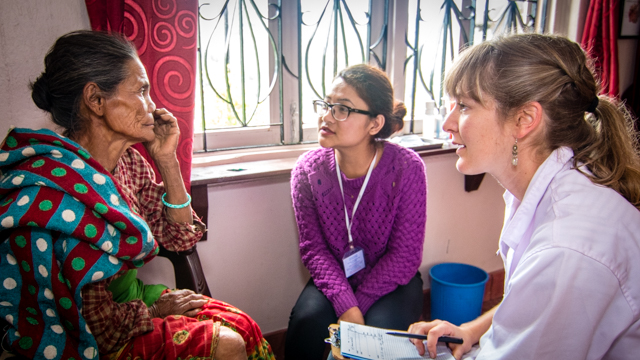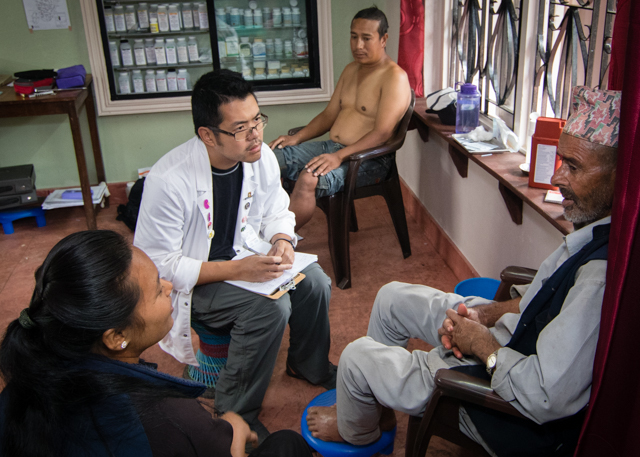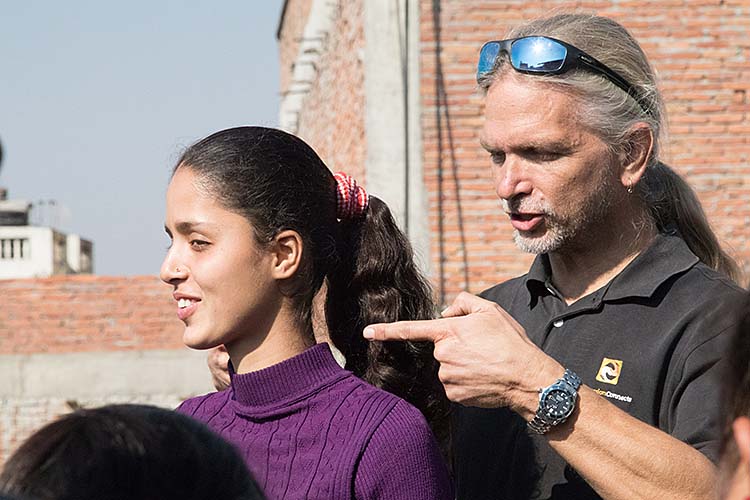News Blog
Latest News From Our Volunteers in Nepal
VOLUNTEER COMMUNITY CARE CLINICS IN NEPAL
Nepal remains one of the poorest countries in the world and has been plagued with political unrest and military conflict for the past decade. In 2015, a pair of major earthquakes devastated this small and fragile country.
Since 2008, the Acupuncture Relief Project has provided over 300,000 treatments to patients living in rural villages outside of Kathmandu Nepal. Our efforts include the treatment of patients living without access to modern medical care as well as people suffering from extreme poverty, substance abuse and social disfranchisement.
Common conditions include musculoskeletal pain, digestive pain, hypertension, diabetes, stroke rehabilitation, uterine prolapse, asthma, and recovery from tuberculosis treatment, typhoid fever, and surgery.
FEATURED CASE STUDIES
Rheumatoid Arthritis +

35-year-old female presents with multiple bilateral joint pain beginning 18 months previously and had received a diagnosis of…
Autism Spectrum Disorder +

20-year-old male patient presents with decreased mental capacity, which his mother states has been present since birth. He…
Spinal Trauma Sequelae with Osteoarthritis of Right Knee +
60-year-old female presents with spinal trauma sequela consisting of constant mid- to high grade pain and restricted flexion…
Chronic Vomiting +

80-year-old male presents with vomiting 20 minutes after each meal for 2 years. At the time of initial…
COMPASSION CONNECT : DOCUMENTARY SERIES

Episode 1
Rural Primary Care
In the aftermath of the 2015 Gorkha Earthquake, this episode explores the challenges of providing basic medical access for people living in rural areas.

Episode 2
Integrated Medicine
Acupuncture Relief Project tackles complicated medical cases through accurate assessment and the cooperation of both governmental and non-governmental agencies.

Episode 3
Working With The Government
Cooperation with the local government yields a unique opportunities to establish a new integrated medicine outpost in Bajra Barahi, Makawanpur, Nepal.

Episode 4
Case Management
Complicated medical cases require extraordinary effort. This episode follows 4-year-old Sushmita in her battle with tuberculosis.

Episode 5
Sober Recovery
Drug and alcohol abuse is a constant issue in both rural and urban areas of Nepal. Local customs and few treatment facilities prove difficult obstacles.

Episode 6
The Interpreters
Interpreters help make a critical connection between patients and practitioners. This episode explores the people that make our medicine possible and what it takes to do the job.

Episode 7
Future Doctors of Nepal
This episode looks at the people and the process of creating a new generation of Nepali rural health providers.

Compassion Connects
2012 Pilot Episode
In this 2011, documentary, Film-maker Tristan Stoch successfully illustrates many of the complexities of providing primary medical care in a third world environment.
From Our Blog

- Details
- By Emma Snare

The morning sunlight, through a gap in my curtain reaches onto my bed and teases my skin. I look outside the window to see beautiful blue sky above our mountain protected valley. Since last time, there is more yellow in the fields and the mustard flowers are coming into season. I am glad we are back in Bajarabarahi. The noisy bikes, trucks and polluted air of Kathmandu is left behind.
I hear a rooster crow in the distance. If you are quiet, you can also hear a buffalo – somewhere - munching his grass.

- Details
- By Jeff Chiu

Fun fact, my body is 85% digestive tract with the rest being sensory and motor structures that assist me in attaining more food. My genetics are closely related to a fluke.
I love food. From fancy, high class meals (when they can be afforded/somebody else is paying), to simple home food, to in moments of weakness, blue box macaroni & cheese and/or packaged instant ramen. When traveling I have a deep respect for the food because I find that local food is the quickest way to get to know a culture. With globalization, and the increase of foreign travel, restaurants can always be found that have western food to appeal to picky foreigners or foreigners who are craving food from home. Initially, I try to soak up at much of the local cuisine as I can in a new place.

- Details
- By Andrew Schlabach

Three months of lecture, review and physical practice and my three young students are looking at me with the blank stares of incomprehension. I’m temporarily at a loss for words. What went wrong?
As part of our long term goals in Nepal, it is our aspiration to train several Nepali born practitioners to serve in our clinics. We have partnered with a small school in Kathmandu, Rural Health Education and Service Center (RHESC) which has similar goals. This Japanese sponsored project began in the early 1980’s as a rural hospital but now finds that their facilities are landlocked within the crowded sprawl of the Kathmandu Valley. RHESC has been using acupuncture in conjunction with their rural hospital for over 30 years and now as part of their sustainability efforts, they have opened a small school. Their program has been accredited by the Council for Technical Education and Vocational Training (CTEVT) but they are hoping to expand to a full baccalaureate degree in the future. As an advisor to their Board of Directors, I have been been assisting with the development of RHESC’s curriculum, serving as a guest instructor, and we host many of their students at our clinics. This partnership with RHESC is a key that we have been looking for since we began in 2008… a pathway to legitimate licensure for our trainees.
Our Mission
Acupuncture Relief Project, Inc. is a volunteer-based, 501(c)3 non-profit organization (Tax ID: 26-3335265). Our mission is to provide free medical support to those affected by poverty, conflict or disaster while offering an educationally meaningful experience to influence the professional development and personal growth of compassionate medical practitioners.
